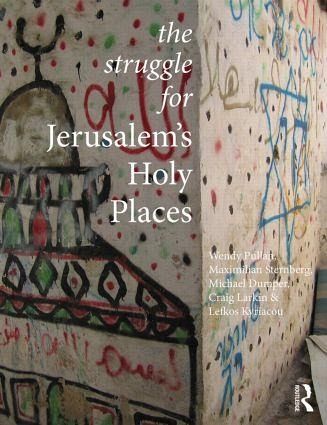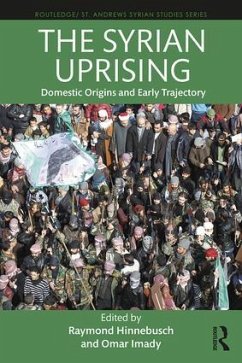
The Struggle for Jerusalem's Holy Places
Versandkostenfrei!
Versandfertig in 1-2 Wochen
86,99 €
inkl. MwSt.
Weitere Ausgaben:

PAYBACK Punkte
43 °P sammeln!
The Struggle for Jerusalem's Holy Places investigates the role of architecture and urban identity in relation to the political economy of the city and its wider state context seen through the lens of the holy places. Reflecting the broad disciplinary backgrounds of the authors, this book provides perspectives from architecture, urbanism, and politics, and provides in-depth investigations of historical, ethnographic and policy-related case¿studies. The research is substantiated by fieldwork carried out in Jerusalem over the past ten years as part of the ESRC Large Grants project 'Conflict in C...
The Struggle for Jerusalem's Holy Places investigates the role of architecture and urban identity in relation to the political economy of the city and its wider state context seen through the lens of the holy places. Reflecting the broad disciplinary backgrounds of the authors, this book provides perspectives from architecture, urbanism, and politics, and provides in-depth investigations of historical, ethnographic and policy-related case¿studies. The research is substantiated by fieldwork carried out in Jerusalem over the past ten years as part of the ESRC Large Grants project 'Conflict in Cities'. By analysing new dynamics of radicalisation through land seizure, the politicisation of parklands and tourism, the strategic manipulation of archaeological and historical narratives and material culture, and through examination of general appropriation of Jerusalem's varied rituals, memories and symbolism for factional uses, the book reveals how possibilities of co- existence are seriously threatened in Jerusalem. Shedding new light on the key role played by everyday urban life and its spatial settings for any future political agreements about the city and its religious sites, this book is a useful reference work for students and scholars of Middle East Studies, Architecture, Religion and Urban Studies.














